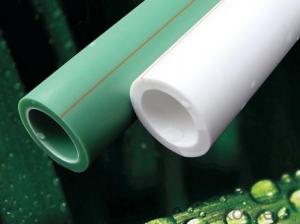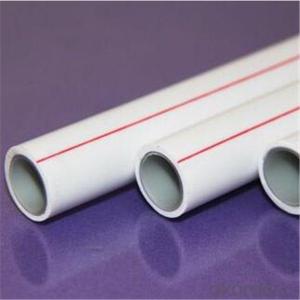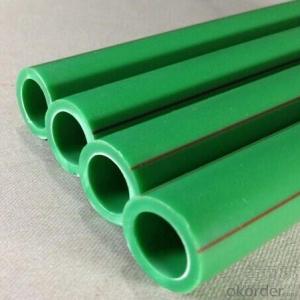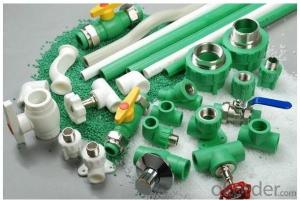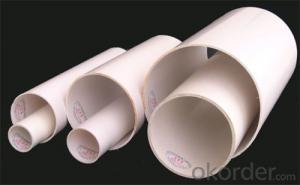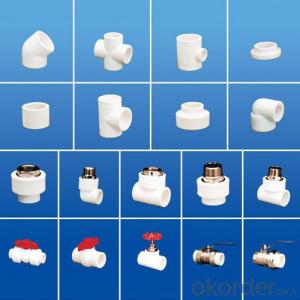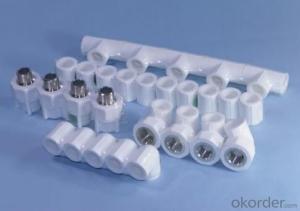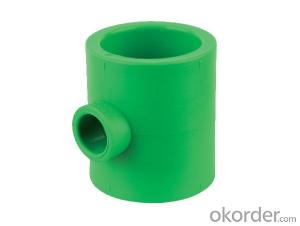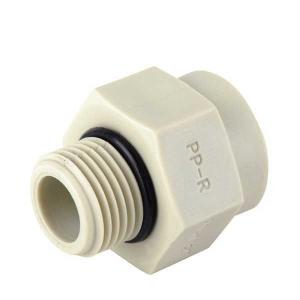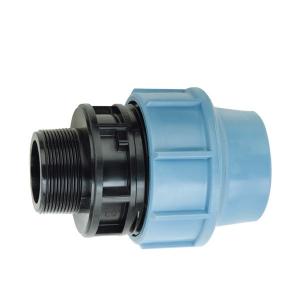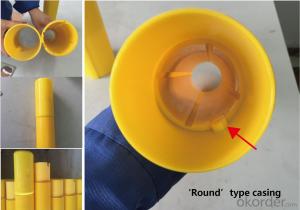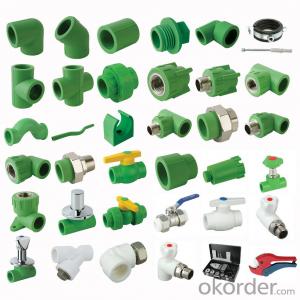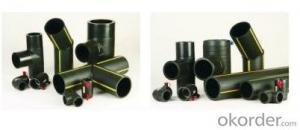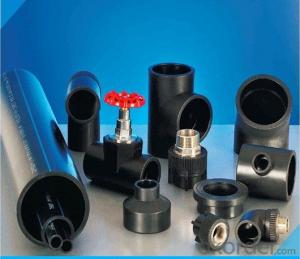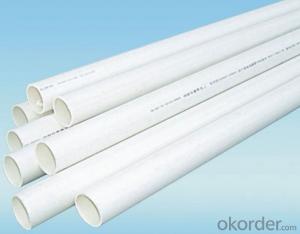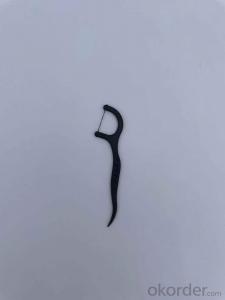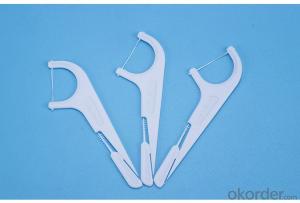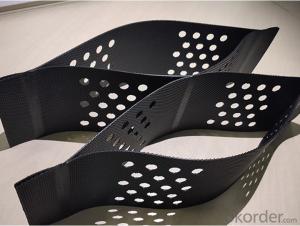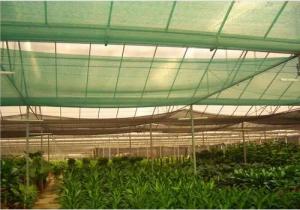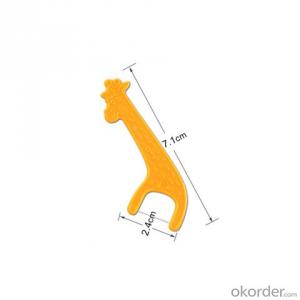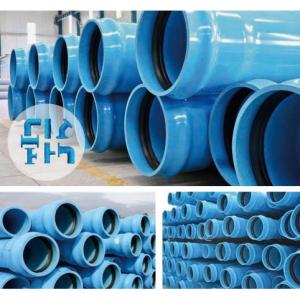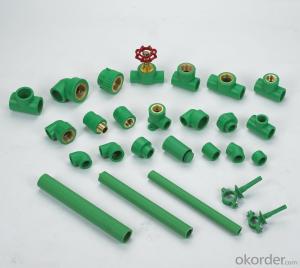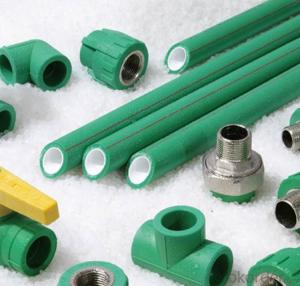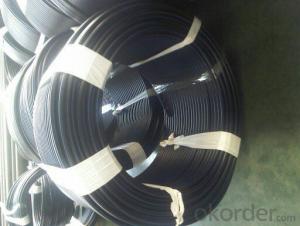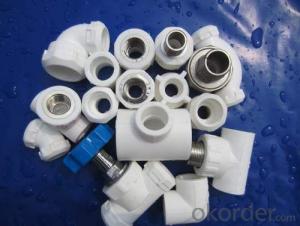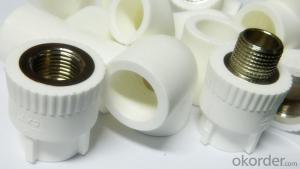PPR pipes used in Industrial fileds and Agriculture fileds from China professional
- Loading Port:
- Tianjin
- Payment Terms:
- TT OR LC
- Min Order Qty:
- 1000 pc
- Supply Capability:
- 100000 pc/month
OKorder Service Pledge
OKorder Financial Service
You Might Also Like
Introduction of Products
It is used in Industrial fields and Agriculture fields
Beauty appearance.
Thermal insulation and energy saving.
Easy installation
Excellent heat resistance and pressure resistance
size
1.25MPa | 1.6MPa | 2.0MPa | 2.5MPa | |
Outer | Wall | Wall | Wall | Wall |
Diameter | Thickness | Thickness | Thickness | Thickness |
dn(mm) | en (mm) | en (mm) | en (mm) | en (mm) |
20 | 2.0 | 2.3 | 2.8 | 3.4 |
25 | 2.3 | 2.8 | 3.5 | 4.2 |
32 | 2.9 | 3.6 | 4.4 | 5.4 |
40 | 3.7 | 4.5 | 5.5 | 6.7 |
50 | 4.6 | 5.6 | 6.9 | 8.3 |
63 | 5.8 | 7.1 | 8.6 | 10.5 |
75 | 6.8 | 8.4 | 10.1 | 12.5 |
90 | 8.2 | 10.1 | 12.3 | 15.0 |
110 | 10 | 12.3 | 15.1 | 18.3 |
160 | 14.6 | 17.9 | 21.9 | 26.6 |
Specification
Products name | PPR Pipes |
Field of Application | Water |
Work temperature | -10℃-110℃ |
Packing | standard export package or customized |
Function | Industrial fileds and Agriculture fileds |
Place of origin | Hebei China(mainland) |
Brand | CMAX |
Certificate | CE,ISO90001 |
Applications of PPR Pipe (white, gray):
1) Cold and hot water supply systems for civil and industrial constructions, e.g. in residential buildings, hospitals, hotels, school and office buildings, ship building
2) Drinking water systems and food industry pipe works
3) Central air conditioning system
4) Irrigating system for gardens and green houses
5) Public and sport facilities such as swimming pools and stadiums
6) For rainwater utilization systems
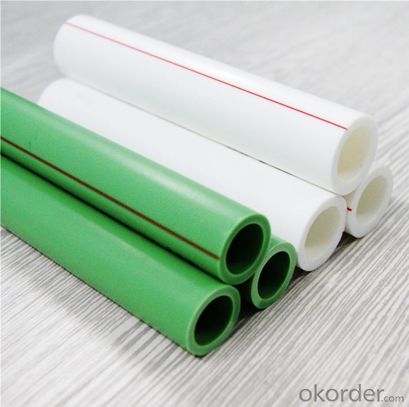
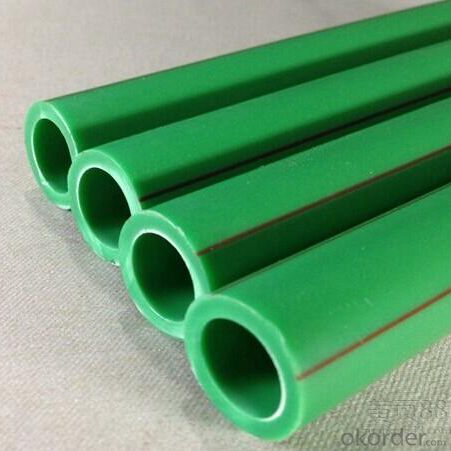
Packaging Details:
1. Large carton: 515 x 400x 220 Cubage: 0.04532 M3
Small carton: 390x255x250 Cubage: 0.0248 M3
2. PE poly bag+ carton Delivery Detail: 15 days/ 20" containers; 25 days/ 40HQ
FAQ
Q1: How Can I Get a Sample?
A1: You can get samples by communicate with our export sales.
Q2: How Long Is Delivery?
A2: Delivery time will be30-45days according to order quantity.
Q3: What Is The MOQ?
A3: MOQ depends on different items.
Q4: What Is Our Normal Payments Terms?
A4: Our normal payment terms now is: T/T, L/C or western union, MoneyGram.
- Q:Can plastic pipe fittings be used in water fountain systems?
- Yes, plastic pipe fittings can be used in water fountain systems. Plastic pipe fittings are commonly used due to their durability, affordability, and resistance to corrosion. They are also lightweight and easy to install, making them suitable for various applications, including water fountain systems. However, it is important to ensure that the plastic pipe fittings are designed for water use and comply with relevant plumbing codes and regulations to ensure proper functionality and safety.
- Q:Can plastic pipe fittings be used for food processing systems?
- Yes, plastic pipe fittings can be used for food processing systems. They are commonly used in the food industry due to their durability, corrosion resistance, and ability to handle high-pressure applications. Additionally, plastic pipe fittings are easy to clean and maintain, making them suitable for maintaining hygiene standards in food processing environments.
- Q:Can plastic pipe fittings be used for condensate drainage systems?
- Yes, plastic pipe fittings can be used for condensate drainage systems. Plastic fittings, such as PVC or CPVC, are commonly used in condensate drainage systems due to their durability, resistance to corrosion, and ease of installation. They are also cost-effective and offer a wide range of fittings to meet specific system requirements. However, it is important to ensure that the chosen plastic fittings are compatible with the specific condensate drainage system and meet industry standards and codes.
- Q:Are plastic pipe fittings resistant to earthquakes?
- Plastic pipe fittings can vary in their resistance to earthquakes depending on their material and design. Some plastic materials, such as PVC, can be relatively brittle and prone to cracking under seismic activity. However, there are also more resilient plastic materials, like high-density polyethylene (HDPE), which offer better resistance to earthquakes due to their flexibility and ability to absorb vibrations. Additionally, the design and installation of the fittings can also play a significant role in their earthquake resistance. So, while plastic pipe fittings can provide some level of resistance, it is essential to consider the specific material, design, and installation methods to ensure their effectiveness in seismic events.
- Q:How do plastic pipe fittings compare to nylon fittings?
- Plastic pipe fittings and nylon fittings have their own advantages and disadvantages. Plastic fittings, which are typically made of PVC or CPVC, are generally more affordable and readily available. They are also resistant to chemicals and corrosion, making them suitable for a wide range of applications. Additionally, plastic fittings are easy to install and require minimal maintenance. On the other hand, nylon fittings offer higher strength and durability, making them ideal for high-pressure applications. They also have excellent resistance to heat and abrasion. However, nylon fittings tend to be more expensive and may not be as widely available as plastic fittings. Ultimately, the choice between plastic and nylon fittings depends on the specific needs and requirements of the project.
- Q:Are plastic pipe fittings suitable for chemical transfer applications?
- Plastic pipe fittings can be suitable for chemical transfer applications depending on the specific requirements of the chemicals being transferred. It is important to consider the compatibility of the chemicals with the type of plastic material used in the fittings, as well as factors such as temperature, pressure, and the concentration of the chemicals. Consulting with a knowledgeable engineer or specialist is recommended to ensure the correct selection of plastic pipe fittings for chemical transfer applications.
- Q:Are plastic pipe fittings compatible with solvent welding?
- Yes, plastic pipe fittings are compatible with solvent welding. Solvent welding is a common and effective method used to join plastic pipes and fittings together. It involves using a solvent cement that chemically bonds the plastic surfaces, creating a strong and leak-proof connection.
- Q:Can plastic pipe fittings be used for food processing facilities?
- Yes, plastic pipe fittings can be used for food processing facilities, but it is important to ensure that the fittings are made from food-grade materials that comply with all relevant regulations and standards.
- Q:Are plastic pipe fittings resistant to soil movement and settlement?
- No, plastic pipe fittings are not generally resistant to soil movement and settlement.
- Q:Can plastic pipe fittings withstand high temperatures?
- Yes, plastic pipe fittings can generally withstand high temperatures, but the specific temperature range will depend on the type of plastic used and their design. Some plastic materials, such as PVC (polyvinyl chloride), CPVC (chlorinated polyvinyl chloride), and PEX (cross-linked polyethylene), are commonly used for piping systems and can handle elevated temperatures. However, it is important to check the manufacturer's specifications and guidelines to ensure that the specific plastic pipe fittings are suitable for the intended high-temperature applications.
1. Manufacturer Overview |
|
|---|---|
| Location | |
| Year Established | |
| Annual Output Value | |
| Main Markets | |
| Company Certifications | |
2. Manufacturer Certificates |
|
|---|---|
| a) Certification Name | |
| Range | |
| Reference | |
| Validity Period | |
3. Manufacturer Capability |
|
|---|---|
| a)Trade Capacity | |
| Nearest Port | |
| Export Percentage | |
| No.of Employees in Trade Department | |
| Language Spoken: | |
| b)Factory Information | |
| Factory Size: | |
| No. of Production Lines | |
| Contract Manufacturing | |
| Product Price Range | |
Send your message to us
PPR pipes used in Industrial fileds and Agriculture fileds from China professional
- Loading Port:
- Tianjin
- Payment Terms:
- TT OR LC
- Min Order Qty:
- 1000 pc
- Supply Capability:
- 100000 pc/month
OKorder Service Pledge
OKorder Financial Service
Similar products
New products
Hot products
